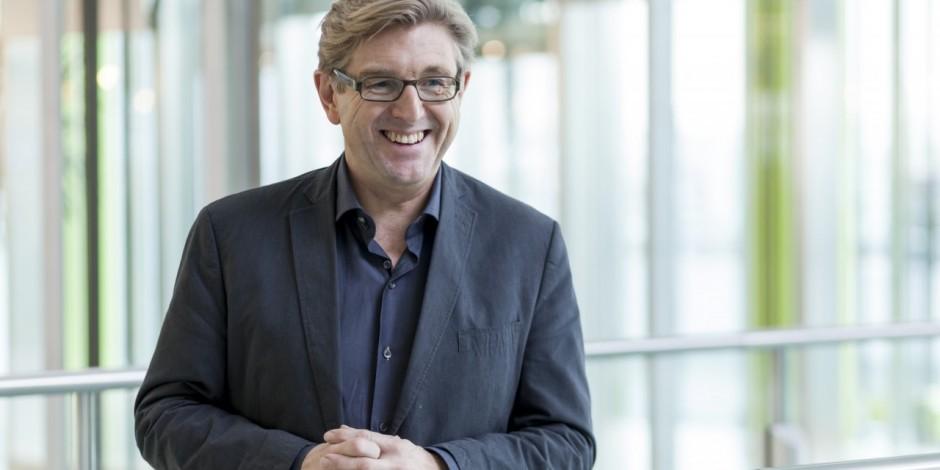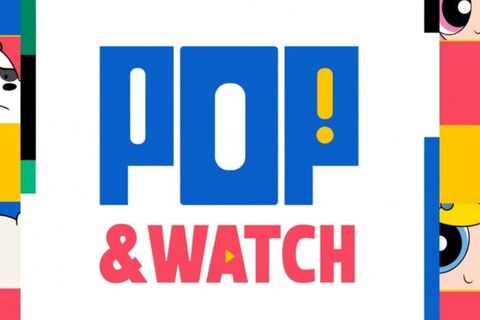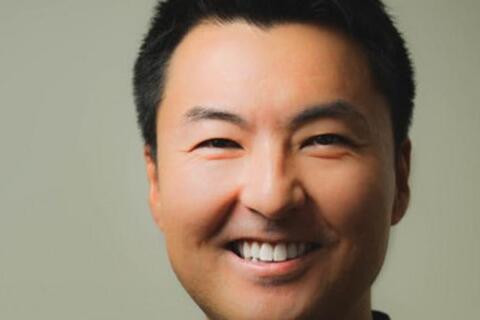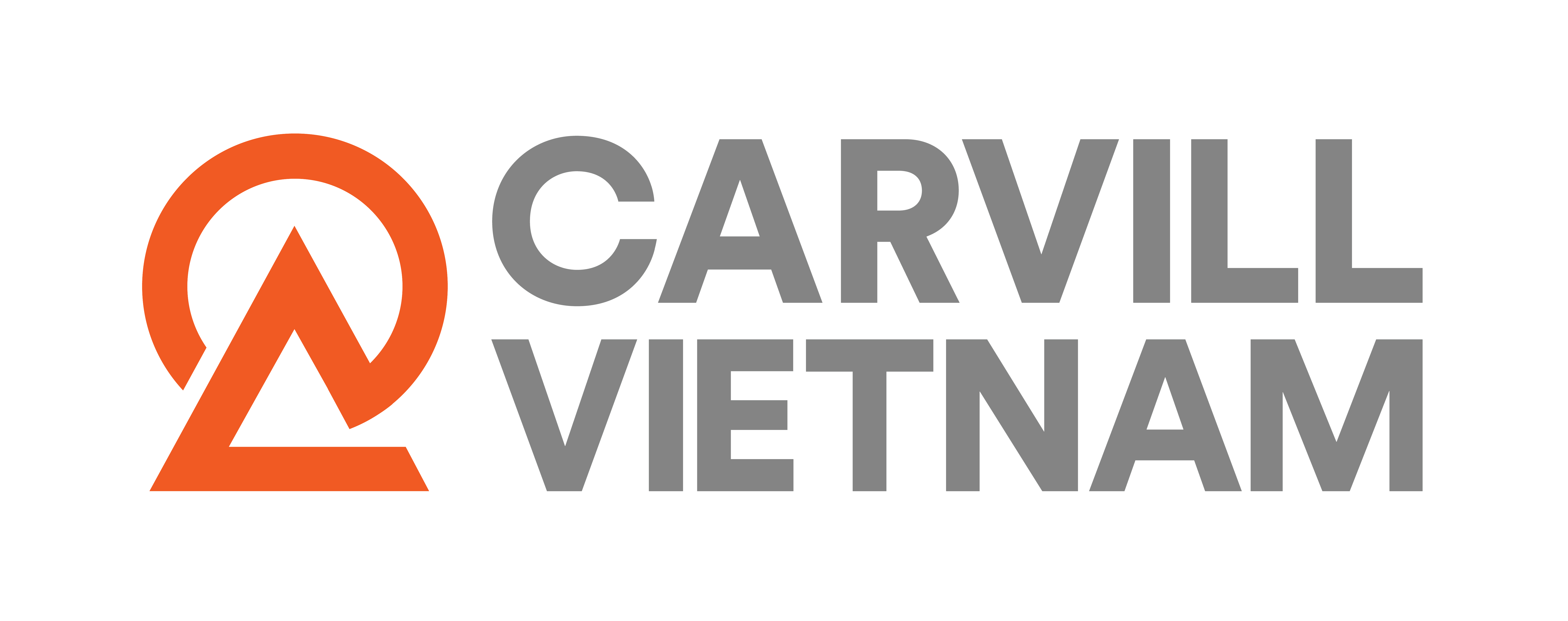Keith Weed: ‘Without trust a brand is just a product and its advertising is just noise’
“The whole idea was to go from the 24/7 of one job to a portfolio of fun stuff,” explains former marketing chief at Unilever, Keith Weed when asked what he is doing now.

Keith Weed: ‘Without trust a brand is just a product and it’s advertising is just noise’
Weed says that he intends to continue his career in service of society while talking to The Drum about his plans going forward, months after leaving his long-term role running marketing within Unilever.
As we talk, the news has yet to be broken as to his successor at Unilever, a longtime coming appointment, that was finally revealed in December. He describes himself as an independent director and trustee, although to break that down, he has recently been named as the incoming president of the Royal Horticultural Society’s president for 2020 as well as joining the board of WPP in a non-executive capacity to help its sustainability drive, continuing his work within his previous role. And on top of that, Weed will continue to undertake his role as the president of the Advertising Association, through which he will work with The Drum as its new agony uncle to help marketers with their problems in a monthly column.
He is also an angel investor within four companies too, he reveals.
“I have a particular love from my Unilever days in serving the community, serving consumers, serving society. And of the ways we did that was in products and services; everyday products from food and nutrition and cleaning homes, etc. And through that process, I got to know the advertising industry and, unfortunately, given it's the advertising industry, you'd think it would do a good job of being able to promote itself but it doesn't have the best reputations," he says.
"If you think about what advertising does is, it connects people to products and services that they want, and explains to them how this might help them or make their life a little bit better or something they might need, etc. And when that happens successfully, the consumer who then buys the protocol services has the positive benefits in their life and economically; countries grow with economic growth which is good for everyone and that is good for society. That sort of combination of how advertising connects the buyers and sellers and also in building brands creates economic value as well. It's an industry. It's going through a bit of a challenge right now and I would love to be part of or making sure that advertising ends up where it should be; serving consumers and clients, building brands and not on the back foot around the area right now of trust which is a big challenge.”
Weed is talking to The Drum at the Advertising Association Lead Conference taking place in Edinburgh, the first in over half a century to take place north of the border, where rebuilding trust in the advertising industry has been at the forefront of much of the conversation of the day, including Weed’s own address around how he believes the industry must proceed to tackle the trust problems it faces.
“The way you go about addressing every problem is, first of all, by accepting you have a problem and identifying what that problem is. And we've had this trust workgroup, which has a whole spectrum of people, so it's led by a couple of industry bodies; ISBA, which the industry body represented advertisers and the IPA, which is the industry body for agency advertising agencies.
"But then we also had everyone from ITV to Google, Direct Line and brand advertisers, media companies and agencies. And we've been doing a piece of work now over what, 18 months or so trying to get to the bottom of what are the things that are driving this issue. And if I list them there won’t be any surprises when you put them all together, what is undermining trust. And at the end of the day, what is a brand? A brand is a product with a lot of trust, building its values. Without trust, a brand is just a product and without trust, advertising is just noise, so identifying what are the things like bombardment," Weed says.
"Some of the unintended consequences of moving into digital advertising are that advertisers can target consumers in different ways. And in fact, there's a possibility of getting much more economically advantageous ways of advertising, which means some advertisers are using some types of advertising too much. The level of bombardment just basically makes people feel very negative about advertising. And for brand advertisers, it's costing a lot of money to do all that advertising and by the way, you’re annoying the person as well.”
He explains that the ‘excessive frequency’ and bombardment of adverts through retargeting has irritated consumers, and that handling the use of their data has to continue to be addressed.
Since beginning with the Advertising Association, Weed has spoken about the seven deadly sins of advertising, which he includes inauthenticity of influencer advertising within as well. He has helped to create a five-point action plan which the organization aims to hand to the industry to address its problems.
Asked how he views the progress of the advertising industry to serve society, a process he was heavily involved in developing at Unilever alongside former chief executive Paul Polman, he is positive about the continued trend.
“If you look at what this business was when it started, it was very much about individuals serving society and if you served society better than the alternative, your competition, your business grew and not their business. That was a social contract that businesses had and somewhere, I don't know whether it was the 70s, 80s or the 90s, I think it all got a little bit lost and then got into selling more stuff and I believe purpose and working out how businesses and brands can better serve society and the planet is a real way to making business and marketing noble and to take it back to what it was; serving people, serving societies.
“I'm often asked, what's the business case for sustainability, for environmental and social sustainability? And I always answered I'd love to see the business case for the alternative. What is the business case for destroying the very planet we live on? What is the business case for pulling apart the society we're trying to serve? And I don't think you'd have a healthy business in an unhealthy society.”
He cites the Global Goals, backed by the United Nations, which he describes as the world’s ‘to-do list’: “There are some things that we need to do right now which will be good for society and the planet and funnily enough, good for the economy as well and so this is not just a social issue, it's an economic issue as well, that doing the right thing funnily enough in a focused way can both build your business and your brand can do the right things for society.
"And when I started, when I was the chief marketing officer of Unilever, I was also responsible for sustainability for environmental and social sustainability. And 10 years ago we started the Unilever Sustainable Living Plan and we looked at the purpose and how are we going to build our brands differently. And now looking back over that last 10 years, we have some brands that have had some real positive impact on building brands like Dove, which is now, a multibillion-dollar success, it's also the largest educator of self-esteem in the world. It's already taught over 30 million young girls to think about their body differently. The whole sort of the ‘Real Beauty’ approach by decoding the beauty industry and explaining to young girls that there's a different way of looking at the beauty magazines now we call it ‘the brand say’, and ‘the brand do’; the brand says is the advertising around beauty and the brand do around what it actually does.”
He continues to explain why brand purpose is crucial for all businesses to consider adopting in order to achieve further success: “Where we need to go as business people, as marketers, as advertisers, is not just find that purpose which resonates with people and with the brand, but goes beyond the advertising. And the positioning that goes into it – so what? What are you really doing? And if a brand like Dove can on one side create the advertising which engages people on an issue and build a point of view and then delivers against it.”
Weed also cites Ben and Jerry’s work on climate and social justice and Domestos on building toilets and teaching people about sanitation.
“If we took this approach to more brands, not only would it be good for society, it'd be fabulous for the industry and independent of the five actions the Advertising Association are putting out right now on how to build trust, that sort of stuff would build trust again."
Finally, Weed discusses his excitement around becoming The Drum’s agony uncle, which will see him take on the questions posed by marketers around the world in an effort to help them overcome the problems they experience in the ever-complicated role they hold through is years of experience leading one of the world’s most influential companies.
“I am passionate about this industry. I do think it's the most fabulous time to be in this industry. There's so much opportunity, so much change. And, of course, as businesspeople, we always look at the downside about the challenges, etc. But if you stand back, we are inventing the way brands are built in the modern world and there's no manual, there's no rule book. We are making this up as we go along. So what I'd love to be able to do is explore some of those issues and challenges that people have and share because collectively we can learn more. None of us are as smart as all of us. I think if we start sharing some of these ideas hopefully it might sort of reinforce an idea someone has and give them the ability to go bolder and bigger or maybe challenge the common view. It might help them think a little bit about what they're doing well and new ideas and say; ‘Wow. Yeah, I hadn't thought of that. I'll try that.’”



 Print the article
Print the article



